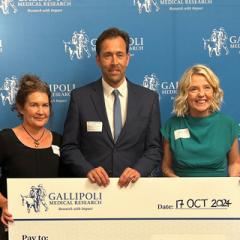The PhD studentship is a flagship initiative of the QUEX Institute
The University of Queensland and the University of Exeter are seeking exceptional students to join a world-leading, cross-continental research team tackling major challenges facing the world’s population in global sustainability and wellbeing as part of the recently launched QUEX Institute.
The joint PhD program provides a fantastic opportunity for the most talented doctoral students to work closely with world class research groups and benefit from the combined expertise and facilities offered at the two institutions. This prestigious program provides full tuition fees, stipend, travel funds and Research Training Support Grants to the successful applicants.
Selected students will have the chance to study in the UK and Australia, and will graduate with a joint degree from both institutions. More information, including UQ and Exeter-based projects and eligibility is available on the UQ Scholarships website.
Student research stories

Poor sleep is linked to dementia risk, but its impact on the functioning of the blood vessels in the brain (cerebrovascular function) remains unclear.
Alice Lester's QUEX-funded PhD puts her in the unique position to collaborate with sleep and vascular health experts in order to explore the associations between habitual sleep patterns, age and cerebrovascular function. To do this, she’s conducting an observational study whereby participants are invited to use innovative technology to monitor their sleep from home, before visiting the laboratory for cerebrovascular function assessments. This research therefore aims to uncover important connections between everyday sleep patterns and brain health.
Fighting common diseases more efficently with bacteriophages.
You might know what it’s like to have strep throat, pneumonia, or pink eye. If you went to see your GP, they would have likely prescribed an antibiotic that hopefully cured you. Overtime this has caused bacteria to evolve and ‘learn’ how to defend themselves against these antibiotics. Samuel Kraus, QUEX PhD student, believes bacteriophages – naturally occurring viruses of bacteria – hold the answer. In his research Samuel explores how we can apply those bacteriphages, on their own or in combination with established antibotics, to curse diseases more efficently, preventing resistance.

Related news and events
-
-
New QUEX Institute theme on Mineral Security and Sustainability
1 November 2023



